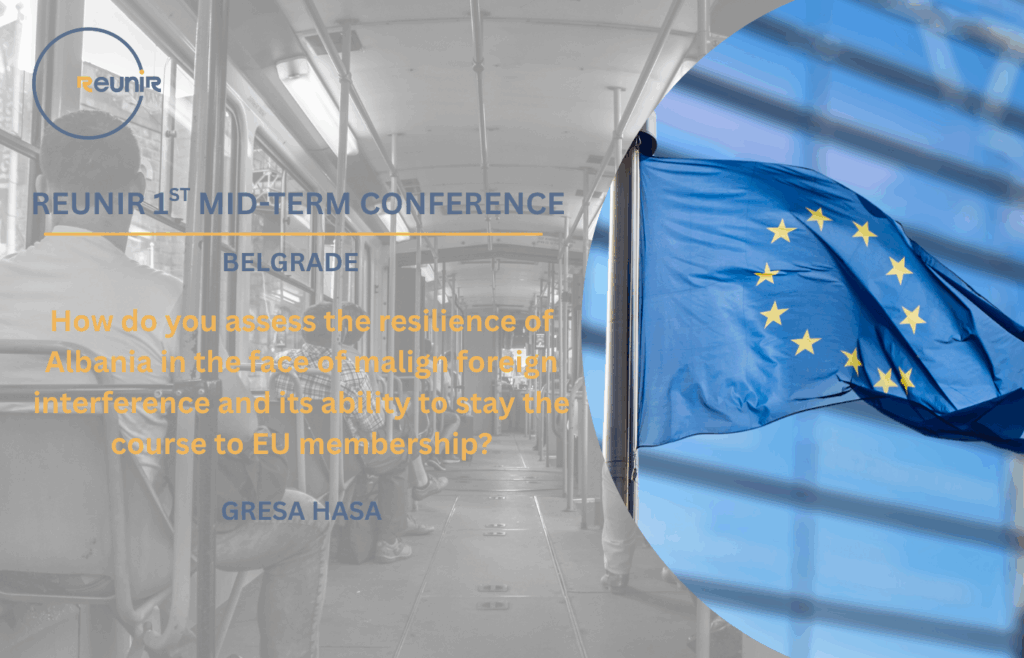REUNIR Expert Insights
“How do you assess the resilience of Albania in the face of malign foreign interference and its ability to stay the course to EU membership?”
In Albania, Western influence continues to shape domestic politics but not always in ways that align with democratic reform. As Gresa Hasa, University of Graz highlights, Prime Minister Edi Rama’s close relationship with far-right leaders like Italy’s Giorgia Meloni particularly around the Albania-Italy migration deal raises serious concerns.
This arrangement, which operates outside the EU’s conditionality framework, positions Albania as a cooperative EU partner, but at the cost of meaningful accountability. These dynamics reflect a broader pattern in the Western Balkans, where transactional politics often overshadow institutional reform. Rama benefits from external legitimacy and financial support, while avoiding deep domestic change. Meanwhile, both the ruling Socialist Party and the opposition are navigating ties with Europe in ways increasingly shaped by populist and even MAGA-style rhetoric. This evolution has profound implications for Albania’s democratic trajectory.
Watch full video below:

